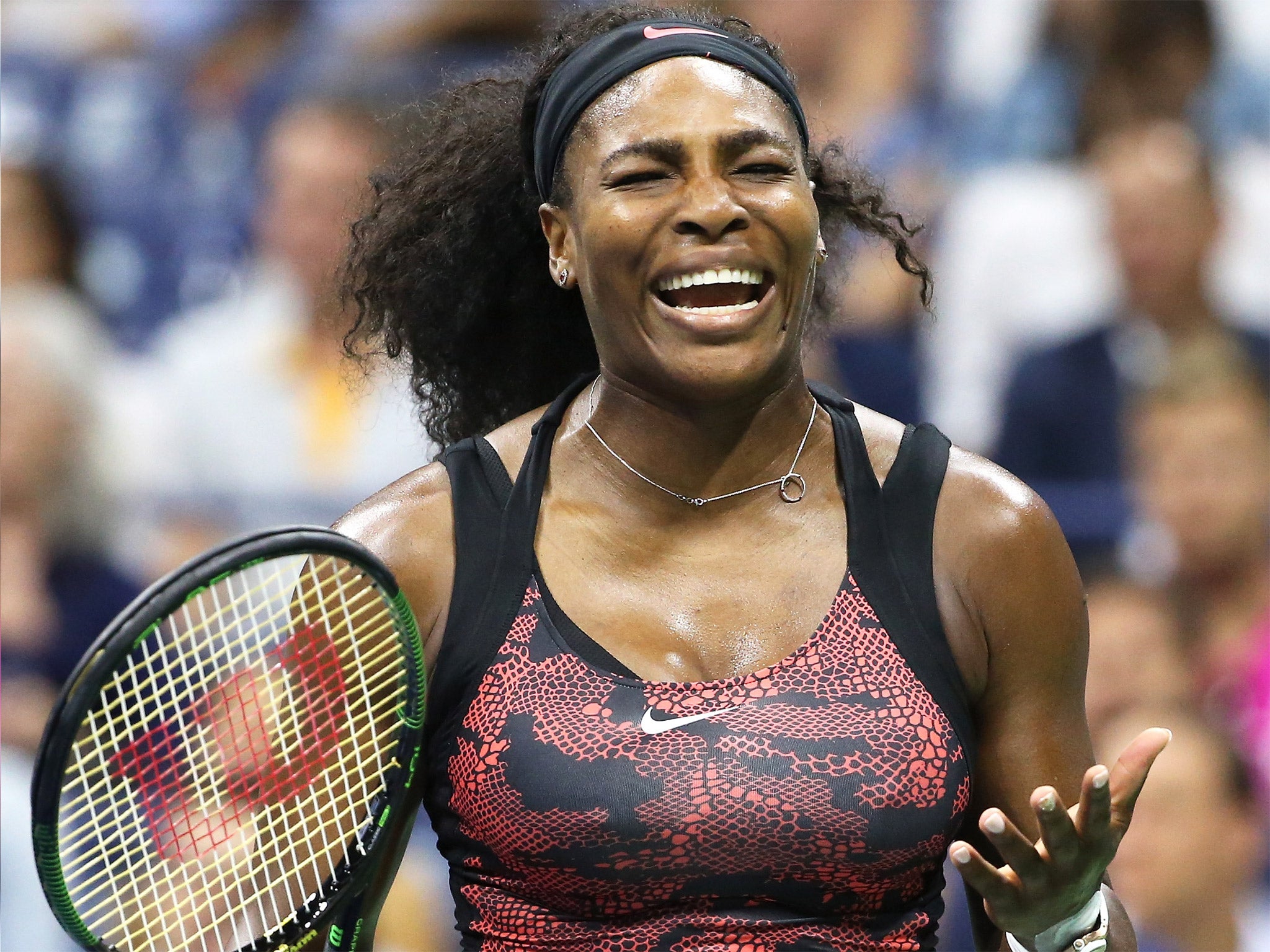Serena Williams: Knee problem behind decision not to play again this year
Coach of world No 1 reveals how injury ended her calendar Grand Slam dream

Patrick Mouratoglou, the coach of Serena Williams, said here that the world No 1’s decision not to play again this year following her defeat in the US Open in September had been largely down to a knee problem, which has been threatening her very future in the sport.
Mouratoglou, who also revealed that Williams had been in a state of depression following her semi-final exit in New York, said that the condition of her knees had left her with “no other option” than to rest. Although she will take part in the International Premier Tennis League in Asia next month, she will not have played competitively for three and a half months by the time she reappears in Australia in early January.
“We knew that at some point she had to rest,” Mouratoglou said. “She plays with pain all the time. The injury can get much worse and at her age her career could really be in danger if she went too far and got more injured, like Rafa [Nadal] did in the past.
“He kept on playing with the same problem, it got worse and he had to stop for almost a year. We don’t want this to happen. She is 34. If she had to stop for a year, then it would be really bad for her future.”
Williams’ problem is worn cartilage in both knees. “She has bone bruises and if you keep on playing with this for too long, the next step is a stress fracture,” Mouratoglou said. “She has treatment but I know that without rest there is no chance because bone keeps hitting bone all the time.”
He said that Williams’ knees had been particularly bad on the day of her defeat to Roberta Vinci at Flushing Meadows, which ended her hopes of becoming only the fourth woman in history to win all four Grand Slam titles in the same calendar year. “The first thing she said when she came to the court [to practise before the semi-final] was: ‘My knees hurt so much today.’ She was struggling to move.”
Mouratoglou added that the pressure of making history had also got to Williams. “The closer you get to a final goal, the stress goes to another level,” he said. “I take my responsibility for that because I couldn’t find a way to make her handle it better.”
He said that Williams had been “really, really affected” by the defeat. “She was depressed because she didn’t reach her goal,” he said. “When she loses, she’s very affected, but of course when she loses when she’s so close to something so big, the disappointment is much higher.”
Mouratoglou, who was speaking at his unveiling here as an ambassador for Maui Jim sunglasses, did not attempt to talk to Williams for a fortnight afterwards. “She doesn’t want to talk when she’s depressed,” he said. “She wouldn’t respond anyway. I represent tennis and after something like this you have to see people who don’t. You have to change your mind, otherwise you keep on thinking about it.”
He added: “She came back to practise this week and she’s already so excited to play, which is good, but the pre-season is long, so you have to manage your motivation. If you go too fast, then in the last weeks before the tournaments you’re going to go down, and that’s the moment when you need to go up, so you have to manage it.”
Andy Murray and Colin Fleming lost in the first round of the Paris Masters doubles, going down 6-2, 6-2 to Bruno Soares – who will partner Jamie Murray next year – and Alexander Peya. Andy Murray plays his opening singles match against Borna Coric of Croatia.
Subscribe to Independent Premium to bookmark this article
Want to bookmark your favourite articles and stories to read or reference later? Start your Independent Premium subscription today.

Join our commenting forum
Join thought-provoking conversations, follow other Independent readers and see their replies
Comments